Given his scheduling slips down the years, that’s a question that might have crossed the lips of at least a few uncharitable editors and readers. However, a very enjoyable BBC documentary has shown the artist to be an industrious and thoughtful creator.
As part of BBC Scotland’s What Do Artists Do All Day? series, film-maker Joseph Briffa spent a day – and a night – with the artist (real name Vincent Deighan). What his thoughtful – and even slightly melancholy – little film revealed was a demanding and largely solitary world of seven-day work weeks, pre-dawn bus journeys, 4.30am finishes, sleeping on the studio floor and nipping over to the public loos in Glasgow Central railway station for a shower.
The main structure of the programme followed Quitely as he produced a page of artwork – p13 of Jupiter’s Legacy #4 – from initial doodles and thumbnails on Mark Millar’s script to his digital ‘pencils’ and then the final inked page.
Interspaced with these process shots were little vignettes of his daily life in the studio: making tea, having lunch with his neighbours, looking out the window, going for a stroll and reflecting on the way Glasgow – which he euphemistically describes as ‘colourful’ – permeates his work.
Briffa and Quitely also gave us a couple of interesting looks at how comics work, looking in particular at two of the artist’s more celebrated sequences: the escape sequence from We3, depicted through dozens of tiny snaps from CCTV cameras (Quitely produced the deck of tiny sketches that he used to map out the pages), and the half-page frame from Jupiter’s Legacy #1 in which Walter creates a psychic ‘cell’ for a super-villain in a way that reflects Quitely’s artistic process, going from sketchy outlines to the finished piece.
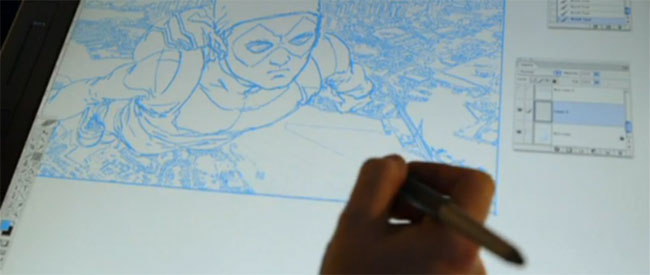
Quitely also offered some thoughts on various artistic and commercial aspects of the comics industry, including the narrative possibilities that mark it out from prose and film, and the control an artist retains over his work that isn’t present in more lucrative fields such as film storyboarding or computer game design.
Looking back at his work on All-Star Superman, he considered the collaborative process, the enduring appeal of classic characters and how the state of his life at any moment can be reflected on the page; he thinks his work on the Bizarro issues is shot through with the fact that he was facing a stressful financial crisis at the time (and he adds – jokingly – that Grant Morrison probably wanted him to have a full breakdown to make his pages even more extreme).
He also spoke about the vicissitudes of the creative life: “I don’t know whether or not it’s a good industry to grow old in. You can slowly keep getting better at what you do in a way that you can’t if you’re a footballer, but then you’ve got the problem of falling out of fashion – just not really being in step any more. And there’s an element of that in comics”.
The film was very nicely produced and edited, despite a bit of vogueish in-and-out-of-focus photography. Briffa kept his presence out of it as much as possible, allowing his subject the room to unfold his life and practice for us.
The result was a gimmick-free bit of advocacy for both the medium and its creators that was never patronising or condescending and steered clear of any thundering over-argument that “comics aren’t just for kids any more”.
The episode will be available for UK residents via the BBC iPlayer until 22.29 GMT on Tuesday March 11th. However, it will be repeated on BBC Four on Tuesday 18th March (22.50) and Wednesday 19th March (02.20), and will presumably be back on the iPlayer again for a week after that. For non-UK residents, I’m sure it won’t be long before some resourceful bod ‘liberates’ it and makes it more widely available.





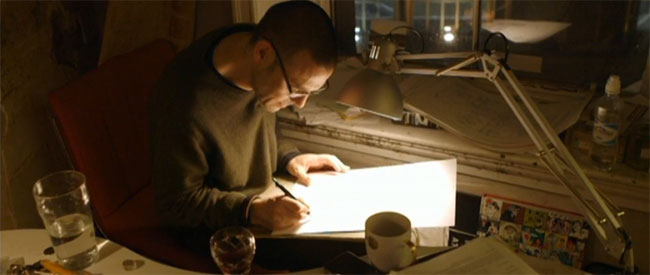
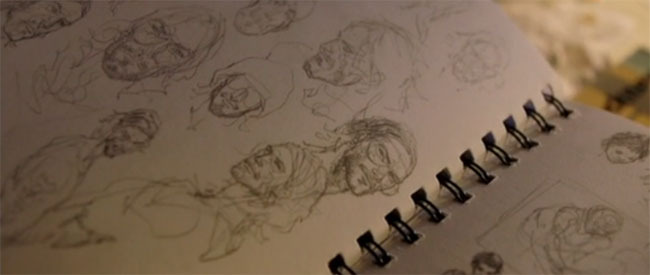
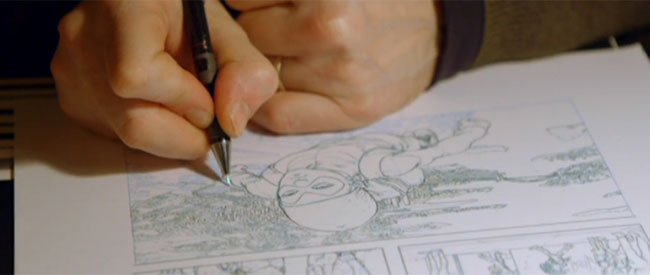
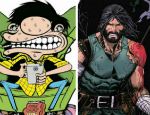
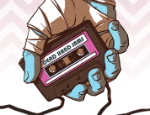
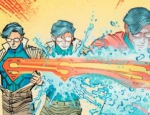






Can’t wait til this is available in the US, legal or not.
looks great, thanks for sharing!
looks great, thanks for sharing!